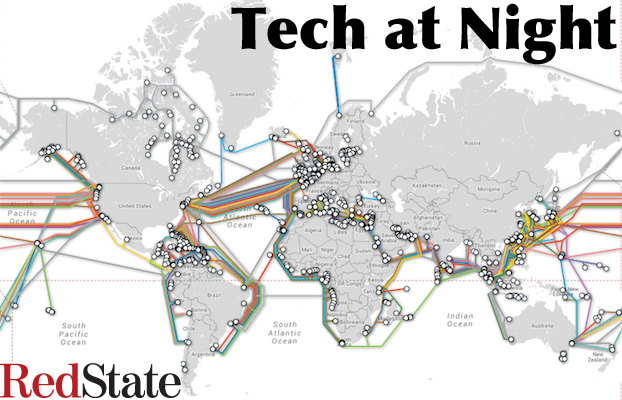
We missed Tech on Monday because of Memorial Day, but I was sick anyway so it wasn’t happening. Still getting over my cold though, so this tech is about 2 hours late.
Here’s your periodic reminder that kids and teenagers shouldn’t be online unsupervised. Adult sexual predators are actively hunting them to take advantage of them.
Keeping data Internet-accessible is inherently dangerous to your privacy. Internet security is spotty but still users don’t actually quit services that gather their data, as their outrage is always short lived. People want convenience and innovation so I reject calls for bigger government to try to use FTC to enforce a privacy few actually want.
Continue reading »
We’re at war online. Iran, North Korea, and Russia are the sources of sustained attacks on our government and our economy. They steal from us, they disrupt our operations, and they’re no better than the pirates of old. On the sea, such attacks would eventually mean war, but on the Internet they get a pass.
Individuals do tend to get nabbed after the fact, as they build massive botnets for credit card fraud and Bitcoin mining, but it’s not enough to sit back passively and wait to get attacked before doing anything.
We need to be proactive, and that means putting together all the information we can about attacks past, present, and future. We need to be able to deal with attacks before the spin up fully. We need to pass along warnings before it’s too late. And that means we need legislation to prevent trial lawyers from making a mess of all of this. So that’s why it’s time to pass CISPA.
Continue reading »

So, more cybersecurity. The government is starting to recognize state actors online, which makes sense given that enemies like Iran aren’t shy about it. That’s good. Recognizing fact is a prerequisite to making good policy.
But I think trying to dictate to private business is the wrong idea. Huawei and ZTE may be organs of the People’s Liberation Army, which would make it a good reason never to have government buy from Huawei, and possibly even to restrict government contractors from using Huawei hardware when fulfilling government contracts. But anything beyond that just grows government in ways that possibly harm us.
If Huawei is breaking the law then we need to put people in jail. If we can show that the Chinese government is attacking us, we need to address the problem at the source, rather than cut a couple vines of kudzu. Expanding government against a couple of businesses is not necessary when we have laws already on the books, and not sufficient when the problem is a state actor.
Continue reading »

Why the Marketplace Fairness Act is looking inevitable: We’re up to about a third of all GOP governors backing it, and there’s a reasonable probability of a former GOP governor becoming President with an all Republican Congress.
Broadening the tax base without actually raising taxes. It’s the Holy Grail for a conservative governor. I expect it’ll get done in 2013.
Riddle me this: If the US government perpetrated Stuxnet and its successor, why do the attacks justify US government action domestically?
If we don’t fix the spectrum crunch, we won’t like the consequences. And that’s why we need government out of the way of the secondary spectrum market, starting with Verizon/Comcast.
Guess what: Internet bill of rights only if it’s like the original and is only a list of restrictions on the Congress.
